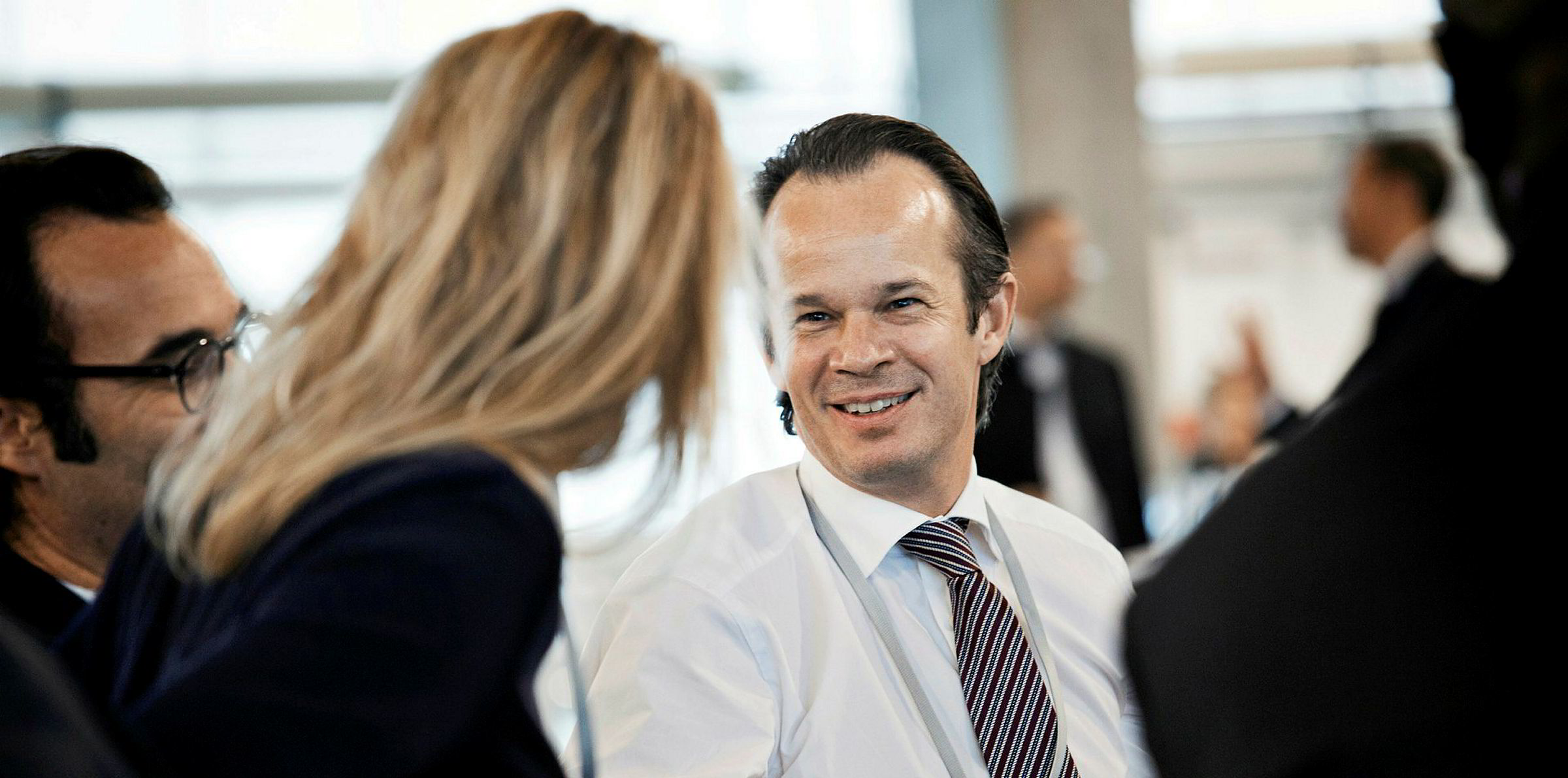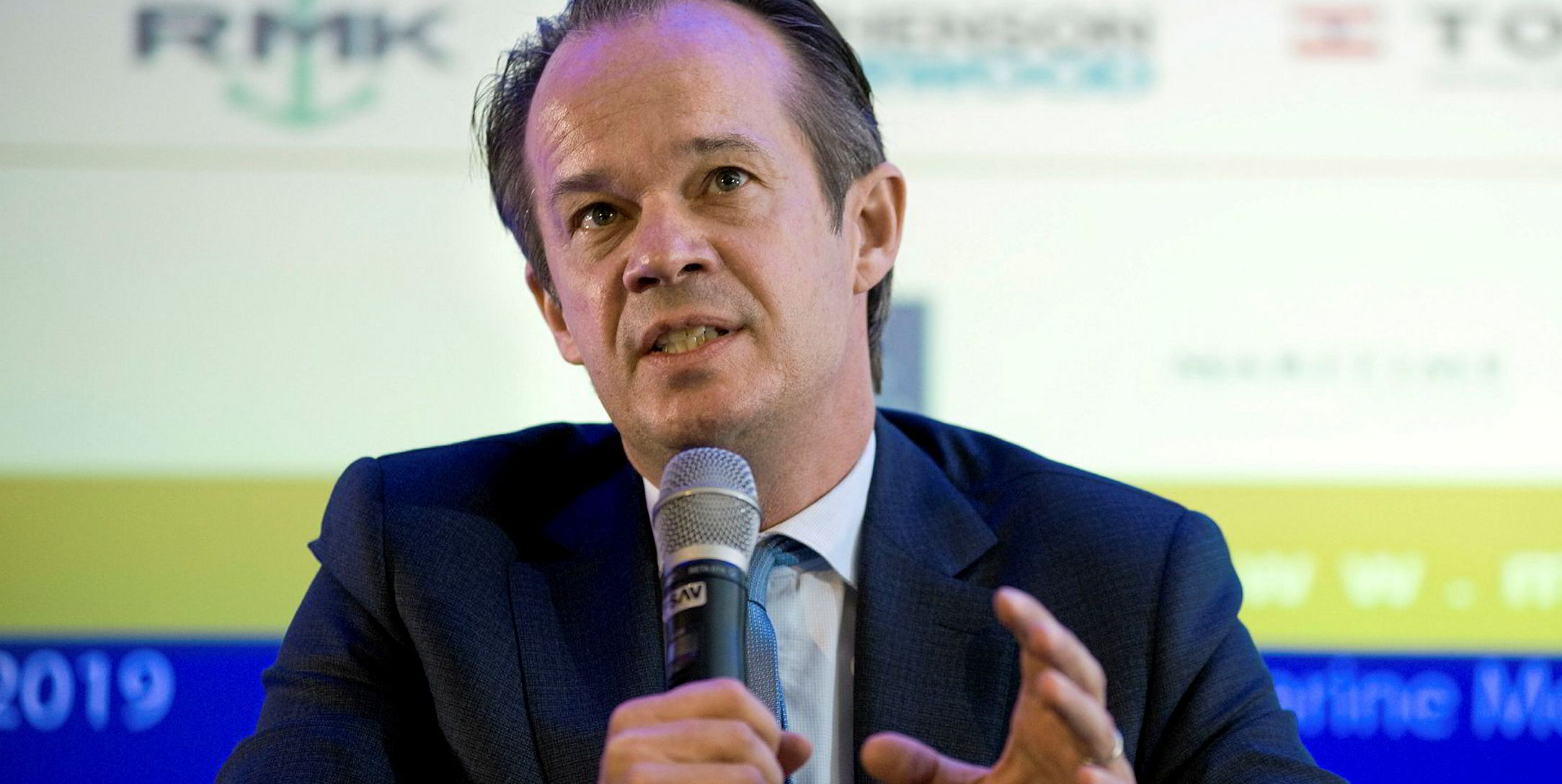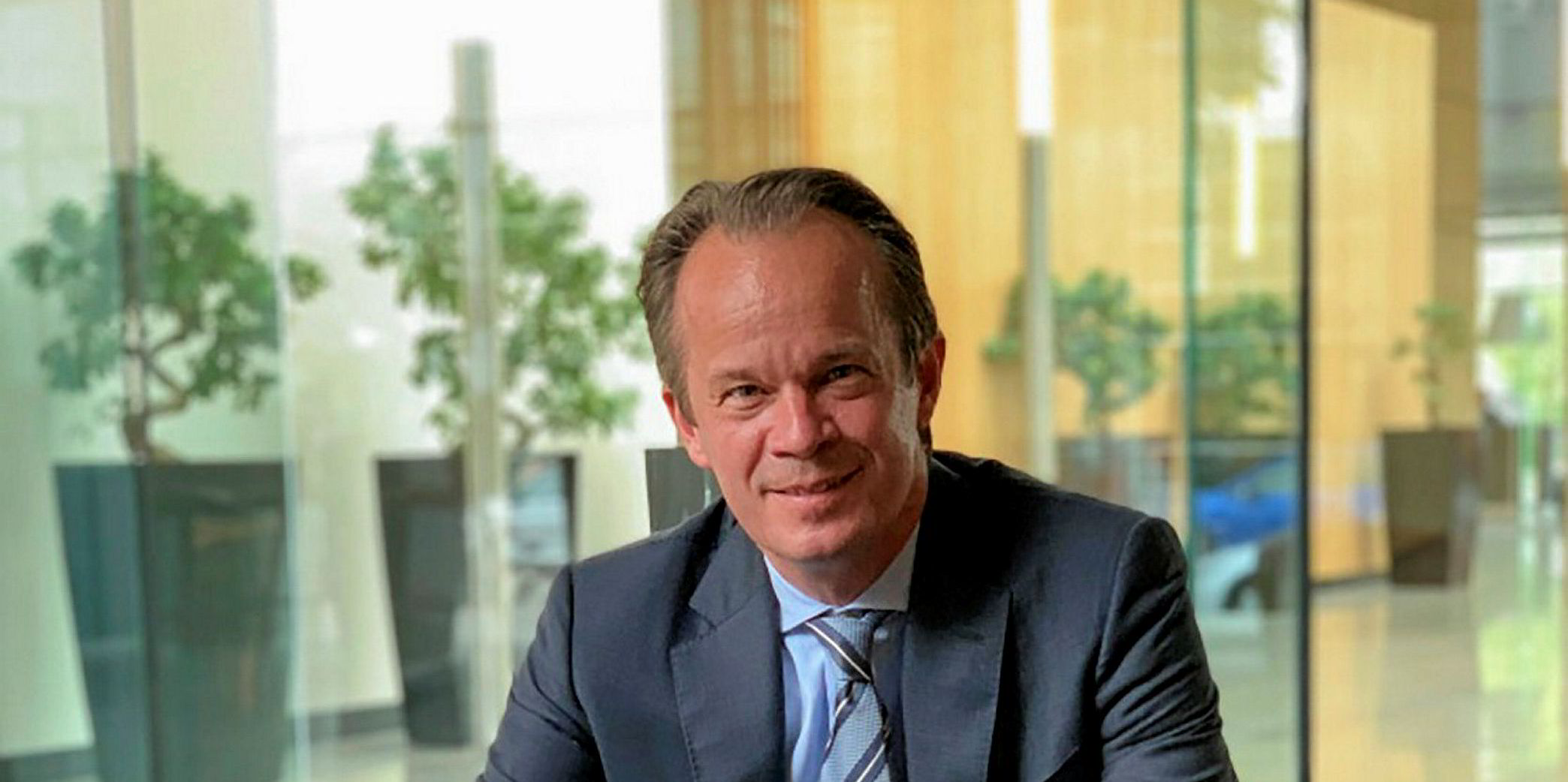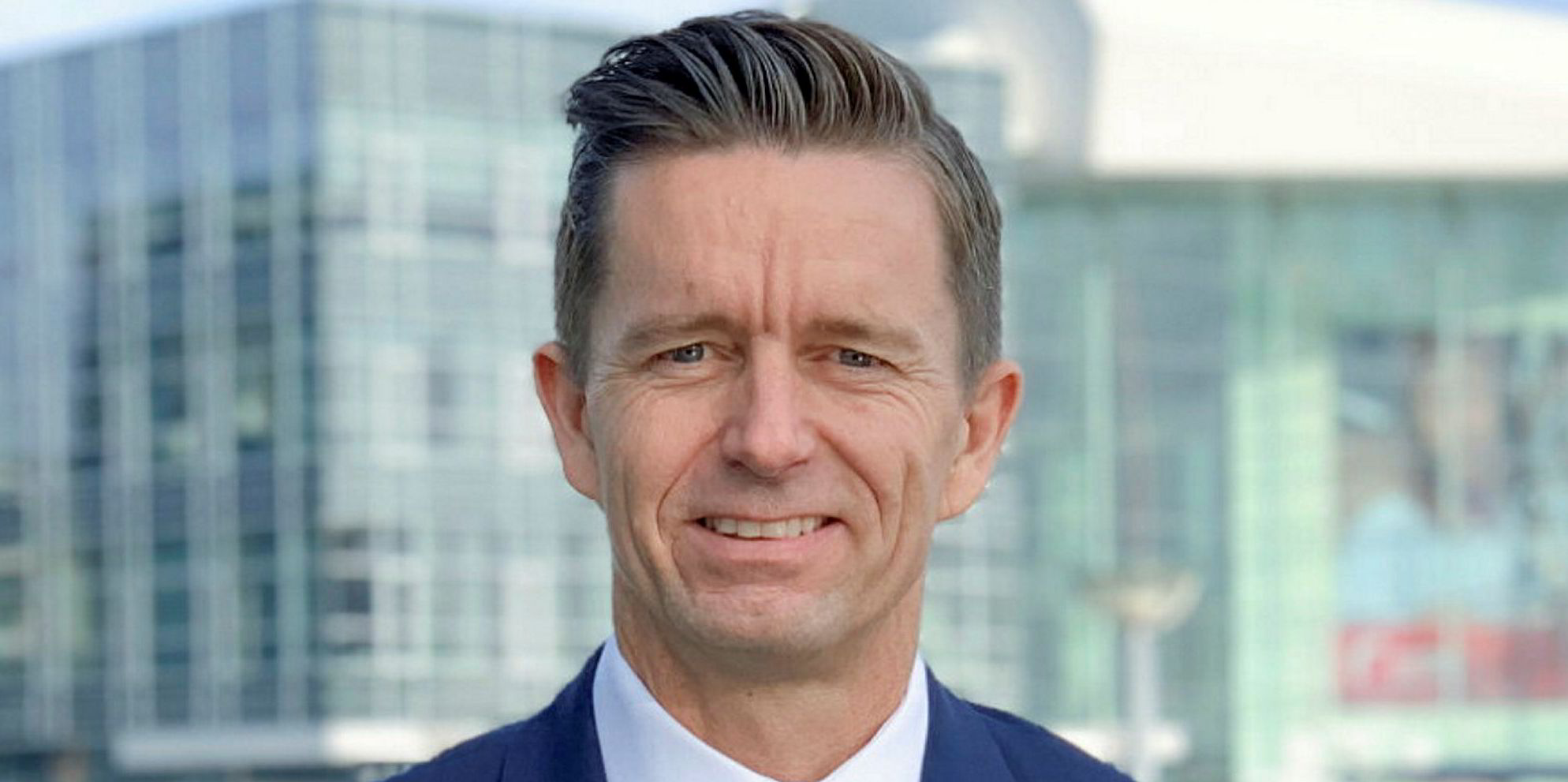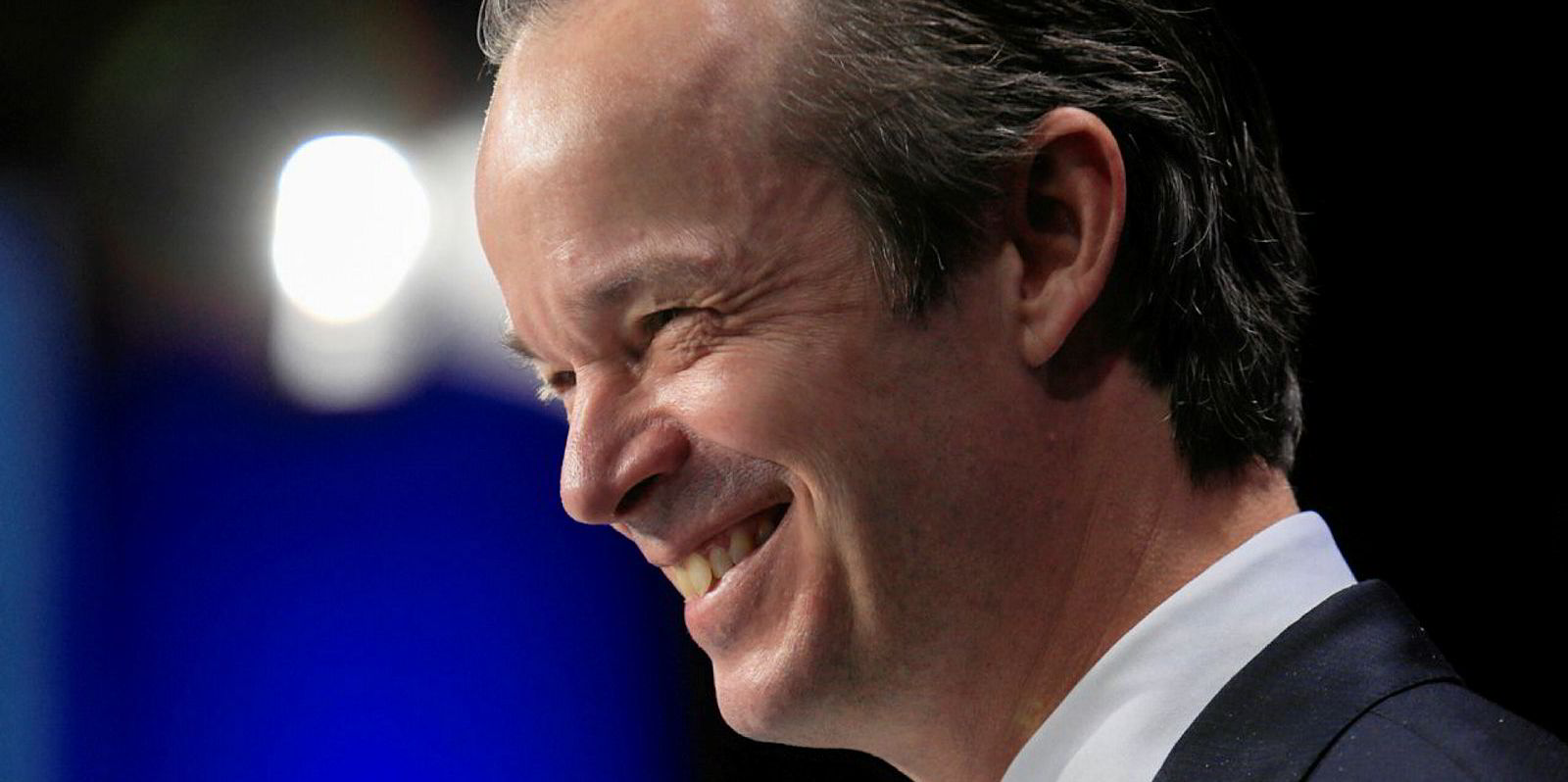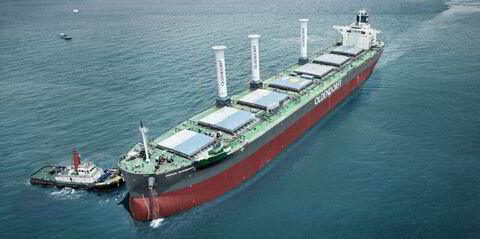Torm chief executive Jacob Meldgaard said the company has few options to boost its share liquidity in a sector viewed as a "small fish" by big institutional investors.
The Torm free float is only about 13%, if Oaktree Capital Management's controlling share of 67% and 20% owned by other private equity funds are viewed together.
Speaking during a podcast with Value Investor's Edge analyst J Mintzmyer, the Danish executive said: "I think Oaktree is, of course, fully aware of that. We are fully aware of that."
Meldgaard said a share issue to address this is unlikely, due to the stock's "considerable" discount to net asset value.
"I don't think it's going to happen and it's actually not going to help us because it would mean that Oaktree and others would have to give up currently protecting their pro-rata share...that they value high and definitely higher than today's share price," he added.
"So, I don't think that's...realistic."
Torm was last week linked by market rumours to a takeover of Ireland-based rival Ardmore Shipping.
Lack of control
Meldgaard did not touch on this directly, but said he sees other possible moves to boost share liquidity.
"I think our own steps would, of course, be that you do some kind of share-for-share transaction with somebody who is willing to go from private into public with us or between two publics, but that is something you can also not control," he said.
"So the thing is actually — in my opinion, shipping has a broader theme of a problem, which is that shipping in general is not very favoured by institutions at large and that we are actually small in the bigger picture."
He called Torm, with its own market capitalisation of $617m, a "small fish" in the bigger picture.
"I think...we need to demonstrate for longer that we actually create superior value in order to get people to be constantly there," he said.
"But I see a lot of value still...[in] simply trading the vessels better than anybody else, delivering the highest return on invested capital among peers, and at the same time, doing the smart things around our assets. And I think that's what the market needs to get its head around."
But Meldgaard admitted that shipowners are "currently not the favourite animal when you look at the uncertainty in the global economy".
He said the company likes the volatility in the market, but can "see that the argument is that we are not providing the stable kind of investment".
"We are, in essence, exposed to volatile markets and we are spot," Meldgaard added.
Leaning towards market optimism
Turning to market prospects, he said that the contango situation in oil markets as "basically gone".
"The forward curve is slightly positive, but not at all to the extremes that we saw within the last couple of months," he said.
"We're seeing a normalisation of the market rate as we speak, to something which is more akin to what we saw pre this spike in the oil demand for floating storage."
This means the high rates will not last as long as previously thought, he added, but on the other hand there could be a demand recovery faster than estimated.
"It does look promising on that side," Meldgaard said.
"I'm probably leaning toward a more optimistic view...but clearly, there will be a bill to be paid in terms of lower rates as you eat through this build-up of products."
